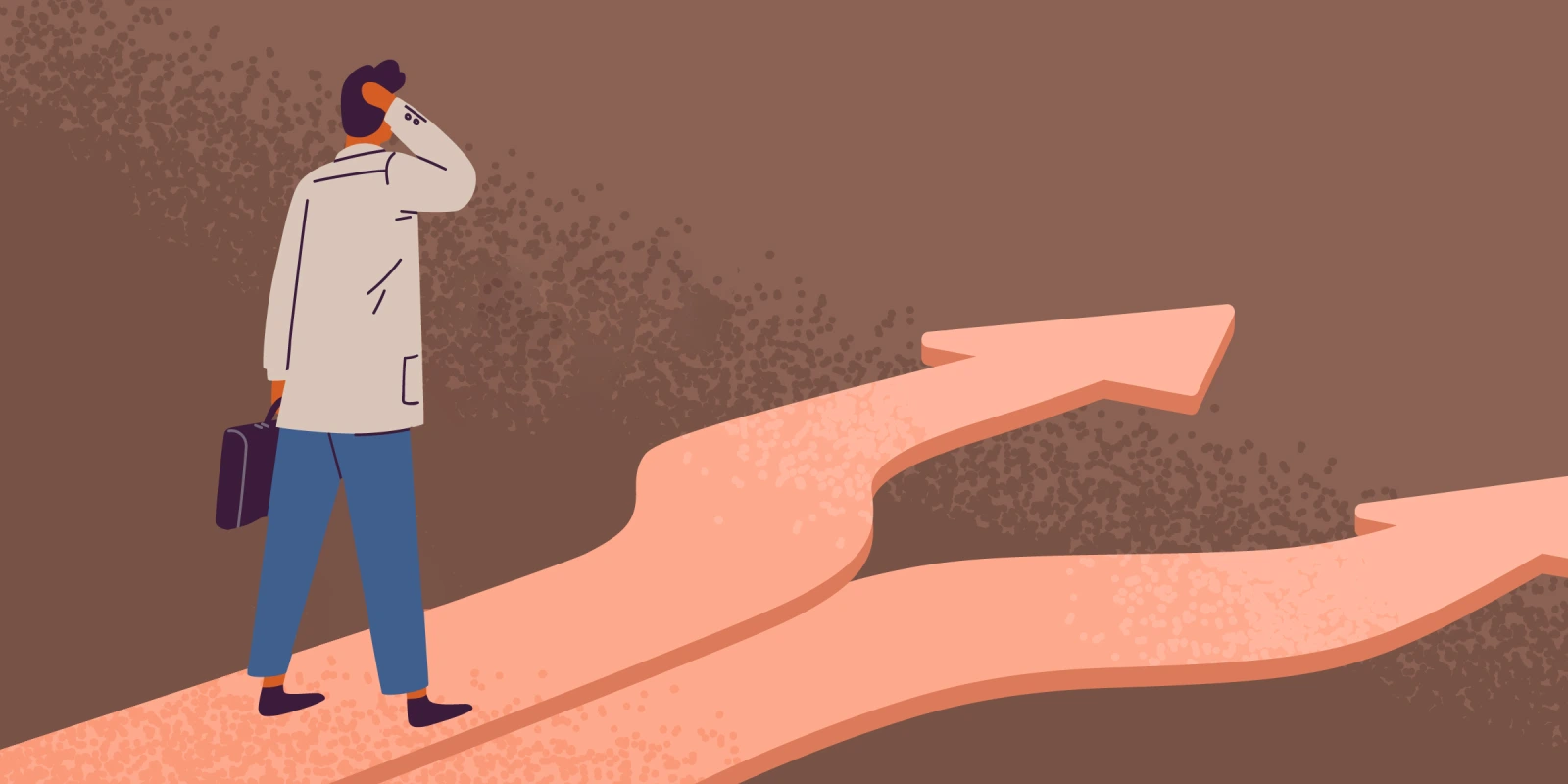We go into medicine with high hopes and dreams. Before school, we think that we might even change the world. This is not incorrect; we often do, and this is our privilege and our drive. We are fortunate to be able to serve and to have the trust of our patients and the knowledge of our forebears. We build on what came before, and our patients, as well as ourselves, benefit from this.
However, there is a cost. There's always a cost. Whenever I prescribe a medication to a patient, I speak to them about risk/benefit, and the relative cost of adhering to a medication regimen. Even if things go as planned, there is a cost: remembering to take medication, refills, follow-up appointments, and side effects. But what are the costs and benefits of being a clinician?
My first job as a PA was in cardiac surgery. I was lucky to be hired as a new graduate at Brigham and Women's Hospital in Boston. While some may have heard of it, at the time, I had not. When I mentioned to my program director that I was going to BWH, he took me aside and expressed how proud he was to place one of us in that program. I felt nauseous — I hadn't considered that my job would reflect not only on myself but on my education. I was willing to learn and do my best to "be good." I also felt intimidated by the responsibilities and wondered if I could rise to the challenge.
I had some fantastic residents I trained under who taught me the rules of medicine. They taught me always to do the right thing, never the wrong thing. Easier said than done. What do you do when a patient desperately wants to go home for his daughter's birthday, but his international normalized ratio hasn't yet become therapeutic? How about the woman who refuses rehab placement, but is a significant fall risk? How do you weigh those costs and benefits?
We pay for our profession not only in money but in time. We work hard, sacrificing our weekends, vacations, and evenings to study, round, operate, and work toward being better than the day before. At what point does that investment start to return to us?
I had a friend, a cardiothoracic fellow at BWH, who posited that PAs might have a better monetary return on their investment than he, a surgeon, did. I was floored. I had never considered the relative costs of education, time spent out of the workforce, not to mention the emotional toll of "it all." Ultimately, he told me, we always have a boss, and that is our patient. Our role is to make them better, and if we fulfill our role as best as we can, we have "done good."
These are gross generalizations, but if we consider monetary costs, the average cost of U.S. medical school is $235,000 for four years, versus the average cost of PA school of $85,000-$100,000 over 27 months. Additionally, the average age of students at the start of school is 23-24 years old for medical school, versus 25-28 for PA school.
In summary, as a PA, you will pay roughly half as much for your education, and enter the workforce sooner. If you choose to be a PA, you will start your positive income stream faster but with less autonomy, and be expected to quickly ramp up your work and responsibilities. There is a degree of training you can expect on the job, but not a formal tract like a traditional residency. And, while initially your salary will be more than residents can expect, the upward potential is less. Depending on specialty, you might make more or less depending on demand, your hours, call responsibilities, etc.
On the other side of the scale, if you choose to be a resident, you will be (under)paid, tired, and stressed for an additional 2-4 years, and if you dare to go into a specialty, prepare for fellowship (1-3 years typically) before settling into your life. Then, your first years in practice will continue to be an extension of increased responsibility, time, and not so much more pay. Only after this will you be able to get paid what you deserve, but then prepare for arguments that the salary you receive is part of our health care problem. The light at the end of the tunnel is the ability to practice as independently as medicine allows, to own and manage your practice, and to enjoy the fruits of your labor. These are the rewards for the sacrifices you've taken, and the years you've spent.
Aside from the financial costs and rewards, there are other, equally important things to consider: our satisfaction with our role, our work-life balance, and the ability to spend the hours of our lives with those we love. PAs typically have a better work-life balance, but not the autonomy or leadership afforded physicians. It's more difficult to own your own practice, to employ or supervise others, and to take a seat at board meetings. Many of us work as employees, rather than colleagues in the practice. However, the benefits to being a PA might be fewer hours worked, fewer calls or obligations to the practice, and the ability to switch specialties. Not insignificant by any means, but a compromise that only the prospective PA or MD can determine.
My wife is a colorectal surgeon, having survived a seven-year surgical residency, and then subsequent fellowship. Her hours during those years were rarely her own: We squeezed dates in at odd times, had our first dinner date around 11 p.m. on a Thursday, and considered our job requirements when it came time to become a family. Ultimately, the choice was obvious when we realized one of us needed to step back a bit. I entered a new specialty where I no longer took call, and could manage my work hours with more authority. Makes a lot of sense for a family, but this choice would have been far more difficult if we both were physicians. My salary took a big hit, but it also allowed my wife's to increase, and we were better able to balance our lives.
It never comes down to simple numbers. Most of my colleagues who are physicians, PAs, and NPs didn't do this for money. Of course, we have to pay back what we begged, borrowed, and stole to get here, but we'd do it again in a heartbeat.
I am consistently humbled and honored by those who have shown that the cost of this is not simply dollars and cents but our lives. We might spend an extra hour (or six) in the hospital if that is the right thing to do, and we will deal with the personal consequences later. That's a cost, too, one that none of us truly covers. Unfortunately, life in medicine is not truly understood by those not in it, not to mention ourselves.
If I have a hope, it is that you get to your payoff, be it in finances, work-life balance, or both. You must understand that no matter what path you choose, you have achieved so much, but have paid the cost. You need to understand that you achieved those goals you set, and hopefully, the cost was worth it.
I am so grateful for those who helped me achieve my goals, both professionally and personally. My patients and colleagues continue to educate me, and my collaborators continue to show me the way. The cost I have paid thus far has been worth it.
Has your "cost" been worth it? Share why or why not in the comments.
Chris van Eyck, DMSc, PA-C, MSHS is a psychiatric physician associate working in psychiatry in Northern Virginia. He was a 2023–2024 Doximity Op-Med Fellow and continues as a 2024-2025 Doximity Fellow.
Image by GoodStudio / Shutterstock







